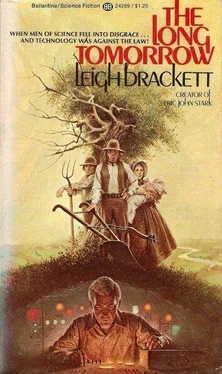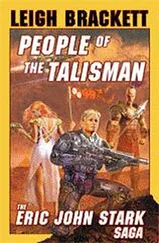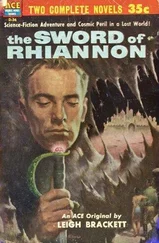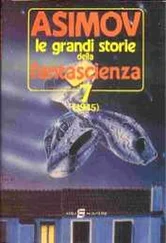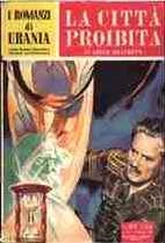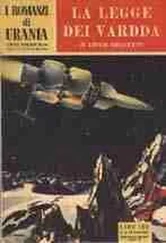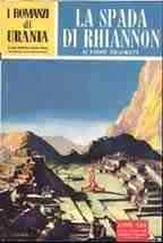Len followed Hostetter and the other man, whose name was Kovacs, into the deckhouse. This was about two thirds the length of the boat, and it was built more as a roof over the cargo hold than it was to provide any elegance for the crew. There were some narrow bunks built in around the walls, and Amity was lying in one of them, her hair all tumbled around her head and her face pale and swollen with tears. Esau was sitting on the edge of the bunk, holding her hand. He looked as though he had been sitting there a long time, and he had an expression Len could not remember seeing on him before, haggard and careworn and concerned.
Len looked at Amity. She spoke to him, not meeting his eyes, and he said hello, and it was like speaking to a stranger. He thought, with an already fading pang, of the yellow-haired girl he had kissed in the rose arbor and wondered where she had gone so swiftly. This was a woman here, somebody else’s woman, already marked by the cares and troubles of living, and he did not know her.
“Did you see my father, Len?” she asked. “Is he all right?”
“He was, the last I saw him,” Len told her. “The farmers weren’t after him. They never touched him.”
Esau got up. “You get some sleep now. That’s what you need.” He patted her hand and then pulled down a thin blanket that had been nailed overhead by way of a curtain. She whimpered a little, protestingly, and told Esau not to go too far away. “Don’t worry about that,” said Esau, with just the faintest trace of despair. “There isn’t any place to go.” He glanced quickly at Len, and then at Hostetter, and Len said, “Congratulations, Esau.”
A slow red flush crept up over Esau’s cheekbones. He straightened his shoulders and said almost defiantly, “I think it’s great. And you know how it was, Len. I mean, why we couldn’t get married before, on account of the judge.”
“Sure,” said Len. “I know.”
“And I’ll tell you one thing,” said Esau. “I’ll be a better father to it than my dad ever was to me.”
“I don’t know,” said Len. “My father was the best in the world, and I didn’t turn out so good either.”
He followed Hostetter and Kovacs down a steep hatch ladder into the cargo hold. The barge did not draw much water, but she was sixty feet long and eighteen wide, and every foot of space in her was crammed with chests and bales and sacks. She smelled strongly of wood and river water, flour and cloth, old tallow and pitch, and a lot of things Len could not identify. From beyond the after bulkhead, sounding muffled and thunderous, came the thumping rhythm of the engine. Just under the hatch a sort of well had been left so that a man could come down the ladder and see that nothing had broached or shifted, and the ladder looked like a solid piece of construction butting onto a solid deck. But a square section of the planking had been swung aside and there was a little pit there, and in the pit was a thing that Len recognized as a radio, although it was larger than the one he and Esau had had, and different in other ways. A man was sitting beside it, talking, with a single lantern hung overhead to give him light.
“Here they are now,” he said. “Wait a minute.” He turned and spoke to Hostetter. “Collins reckons the best thing would be to contact Rosen at the falls. The river’s fairly low now, and he figures with a little help we could slip them there.”
“Worth trying,” said Hostetter. “What do you think, Joe?”
Kovacs said he thought Collins was right. “We sure don’t want any fights, and they’re bound to catch up to us, running light.”
Esau had come down the ladder, too. He was standing by Len, listening.
“Watts?” he asked.
“I guess so. He must have gone scurrying around clear over to Shadwell to get men.”
“They’re crazy mad,” said Kovacs. “They can’t very well get back at the farmers, so they’ll take it out on us. Besides, we’re fair game whenever you find us.” He was a big burly young man, very brown from the sun. He looked as though it would take a great deal to frighten him, and he did not seem frightened now, but Len was impressed by his great determination not to be caught by the boats from Refuge.
Hostetter nodded to the man at the radio. “All right, Sam. Let’s talk to Rosen.”
Sam said good-by to Collins and began to fiddle with the knobs. “God,” said Esau, almost sobbing, “do you remember how we worked with that thing and couldn’t raise a whisper, and I stole those books—” He shook his head.
“If you hadn’t happened to listen in at night,” said Hostetter, “you never would have heard anything.” He was crouched down beside the pit now, hanging over Sam’s shoulder.
“That was Len’s idea,” said Esau. “He figured you’d run too much risk of being seen or overheard in the daytime.”
“Like now,” said Kovacs. “We’ve got the aerial up—pretty obvious, if you had light enough to see it.”
“Shut up,” said Sam, bending over the radio. “How do you expect me to—Hey, will you guys give me a clear channel for a minute? This is an emergency.” A jumble of voices coming in tinny confusion from the speaker clarified into a single voice which said, “This is Petto at Indian Ferry. Do you want me to relay?”
“No,” said Sam. “I want Rosen. He’s within range. Lay low, will you? We’ve got bandits on our tail.”
“Oh,” said the voice of Petto. “Sing out if you want help.”
“Thanks.” Sam fiddled with the knobs some more and continued to call for Rosen. Len stood by the ladder and watched and listened, and it seemed in retrospect that he had spent nearly all of his life in Piper’s Run down by the Pymatuning trying to make voices come out of an obstinate little box. Now, in a daze of wonder and weariness, he heard, and saw, and could not realize yet that he was actually a part of it.
“This is so much bigger than the one we had,” said Esau, moving forward. His eyes shone, the way they had before again, and the subtle weakness of the mouth was lost in eagerness. “How does it work? What’s an aerial? How—”
Kovacs began to explain rather vaguely about batteries and transistors. His mind was not on it. Len’s gaze was drawn to Hostetter’s face, half shaded by the brim of his hat—the familiar brown Amish hat, the familiar square cut of the hair and the shape of the beard—and he thought of Pa, and he thought of Brother James and his two boys, and of Gran who would not regret the old world any more, and of Baby Esther who must be grown tall by now, and he turned his head away so that he could not see Hostetter but only the impersonal dark beyond the lantern’s circle, full of dim and meaningless cargo shapes. The engine thumped, slow and steady, with a short sighing like the breathing of someone asleep. He could hear the paddle blades strike the water, and now he could hear other sounds too, the woody creaking of the barge itself and the sloughing and bubbling of the river sliding underneath the hull. One of those moments of disorientation came to him, a wild interval of wondering what he was doing in this place, ending in a realization that a lot had happened in the last twenty-four hours and he was tired out
Sam was talking to Rosen.
“We’re going to crack on some speed now. It should be right after daybreak, if we don’t run onto a sand bar.”
“Well, watch it,” said the scratchy voice of Rosen from the speaker. “The channel’s tricky now.”
“Is anything getting down the rapids?”
“Nothing but driftwood. It’s all locking through, and I’ve got them piled up at both ends of the canal. I don’t want to tamper with the gates unless I’m forced to it. I’ve spent years building myself up here, but the slightest breath of suspicion—”
Читать дальше
